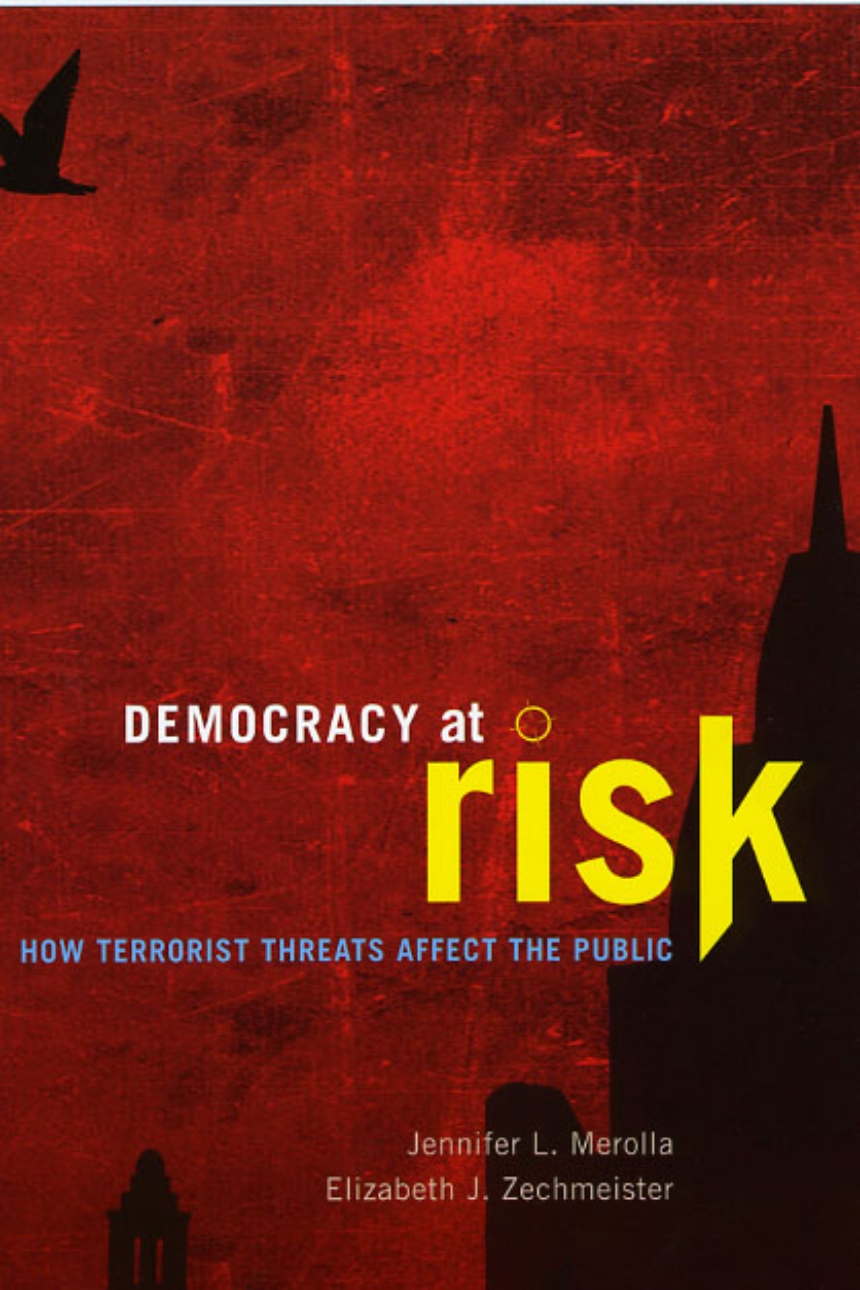Democracy at Risk
How Terrorist Threats Affect the Public
How do threats of terrorism affect the opinions of citizens? Speculation abounds, but until now no one had marshaled hard evidence to explain the complexities of this relationship. Drawing on data from surveys and original experiments they conducted in the United States and Mexico, Jennifer Merolla and Elizabeth Zechmeister demonstrate how our strategies for coping with terrorist threats significantly influence our attitudes toward fellow citizens, political leaders, and foreign nations.
The authors reveal, for example, that some people try to restore a sense of order and control through increased wariness of others—especially of those who exist outside the societal mainstream. Additionally, voters under threat tend to prize “strong leadership” more highly than partisan affiliation, making some politicians seem more charismatic than they otherwise would. The authors show that a wary public will sometimes continue to empower such leaders after they have been elected, giving them greater authority even at the expense of institutional checks and balances. Having demonstrated that a climate of terrorist threat also increases support for restrictive laws at home and engagement against terrorists abroad, Merolla and Zechmeister conclude that our responses to such threats can put democracy at risk.
280 pages | 23 line drawings, 16 tables | 6 x 9 | © 2009
Chicago Studies in American Politics
Political Science: American Government and Politics, Comparative Politics, Political Behavior and Public Opinion
Reviews
Table of Contents
List of Figures
List of Tables
Abbreviations
Acknowledgments
Introduction
1. Coping with the Threat of Terrorism
2. Crisis Creation: A Methodological Tour
3. Love Thy Neighbor? Terror Threat and the Social Fabric
4. Holding Out for a Hero: Looking for Leadership in Times of Terror Threat
5. Enabling Charismatic Leadership in Times of Terror Threat
6. Engage Abroad, Protect at Home
Conclusion
Appendix: Question Wording and Coding
Notes
References
Index
